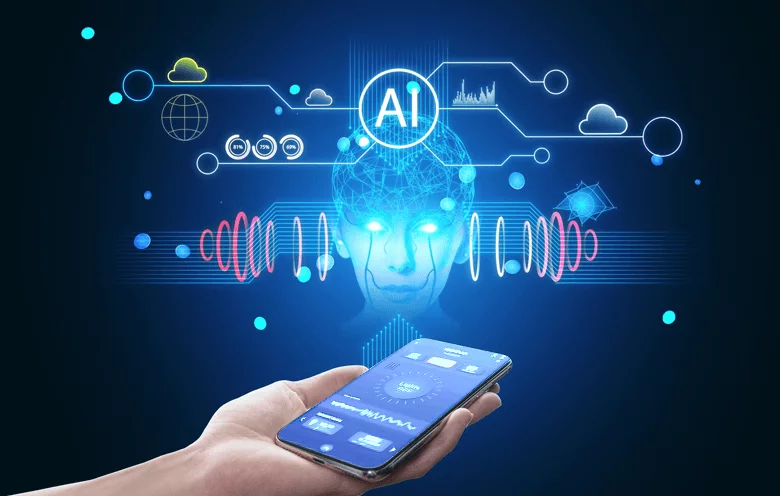The mobile app development landscape is evolving rapidly, and artificial intelligence (AI) is at the forefront of this transformation. AI technologies are streamlining processes, improving efficiency, and enhancing the overall quality of mobile applications. In this blog, we’ll explore how to leverage AI to automate various aspects of mobile app development, helping developers create better apps faster.

Table of Contents
Toggle1. Streamlining Code Generation
AI-powered tools can automate the code generation process, reducing the time developers spend writing repetitive code. Technologies like OpenAI Codex and GitHub Copilot analyze existing codebases and suggest code snippets based on context. This feature can significantly speed up development by providing real-time code completions, enabling developers to focus on more complex tasks and creative aspects of the project.
2. Automated Testing
Quality assurance is a critical component of mobile app development. AI can automate testing processes, making them faster and more reliable. Tools like Appium and Test.ai use machine learning algorithms to simulate user interactions, identify bugs, and validate app functionality across various devices. Automated testing helps ensure that apps function correctly before launch, reducing the likelihood of post-release issues.
3. Enhanced User Experience through Personalization
AI enables developers to create more personalized experiences for users by analyzing data patterns and behaviors. By integrating AI algorithms into your mobile app, you can offer personalized content, recommendations, and features based on user preferences. This not only enhances user satisfaction but also increases engagement and retention rates. For example, streaming services like Netflix utilize AI algorithms to recommend shows based on user viewing history.
4. Predictive Analytics for User Behavior
AI can analyze user data to predict future behavior and trends. By integrating predictive analytics into your mobile app, you can make informed decisions about feature development and marketing strategies. Tools like Mixpanel and Amplitude provide insights into user interactions, enabling you to identify areas for improvement and anticipate user needs. This data-driven approach ensures that you are always in tune with your audience.
5. Chatbots for Enhanced Support
Incorporating AI-powered chatbots into your mobile app can automate customer support processes. Chatbots can handle common queries, provide instant assistance, and guide users through troubleshooting steps, freeing up your support team for more complex issues. This not only improves user satisfaction but also reduces operational costs. Platforms like Dialogflow and IBM Watson Assistant offer robust solutions for integrating chatbots into mobile applications.
6. AI for App Design and Prototyping
AI tools can also assist in the design and prototyping phase of mobile app development. Platforms like Figma and Adobe XD are increasingly incorporating AI features to streamline design processes. These tools can automate tasks such as layout adjustments, color suggestions, and even generate design components based on user input. By enhancing the design workflow, developers can focus on creating visually appealing and user-friendly interfaces.
7. Improving Security with AI
Security is paramount in mobile app development. AI can enhance security measures by automating threat detection and response. Machine learning algorithms can analyze user behavior to identify anomalies and potential security breaches. Tools like Cylance and Darktrace utilize AI to monitor network activity, helping developers address vulnerabilities before they can be exploited.
8. Continuous Integration and Deployment (CI/CD)
AI can automate the CI/CD process, ensuring that code changes are automatically tested and deployed. Tools like Jenkins and CircleCI can integrate AI-driven analytics to predict build failures or deployment issues. This automation leads to faster release cycles, allowing developers to deliver updates and new features to users more efficiently.
Conclusion
Artificial intelligence is revolutionizing mobile app development, providing tools and techniques that automate various processes, enhance user experiences, and improve app quality. By embracing AI technologies, developers can streamline workflows, reduce development time, and create apps that resonate with users. As the landscape continues to evolve, integrating AI into mobile app development will not only become a competitive advantage but also a necessity for delivering top-notch mobile experiences. Embrace AI today to shape the future of your mobile applications!


No responses yet